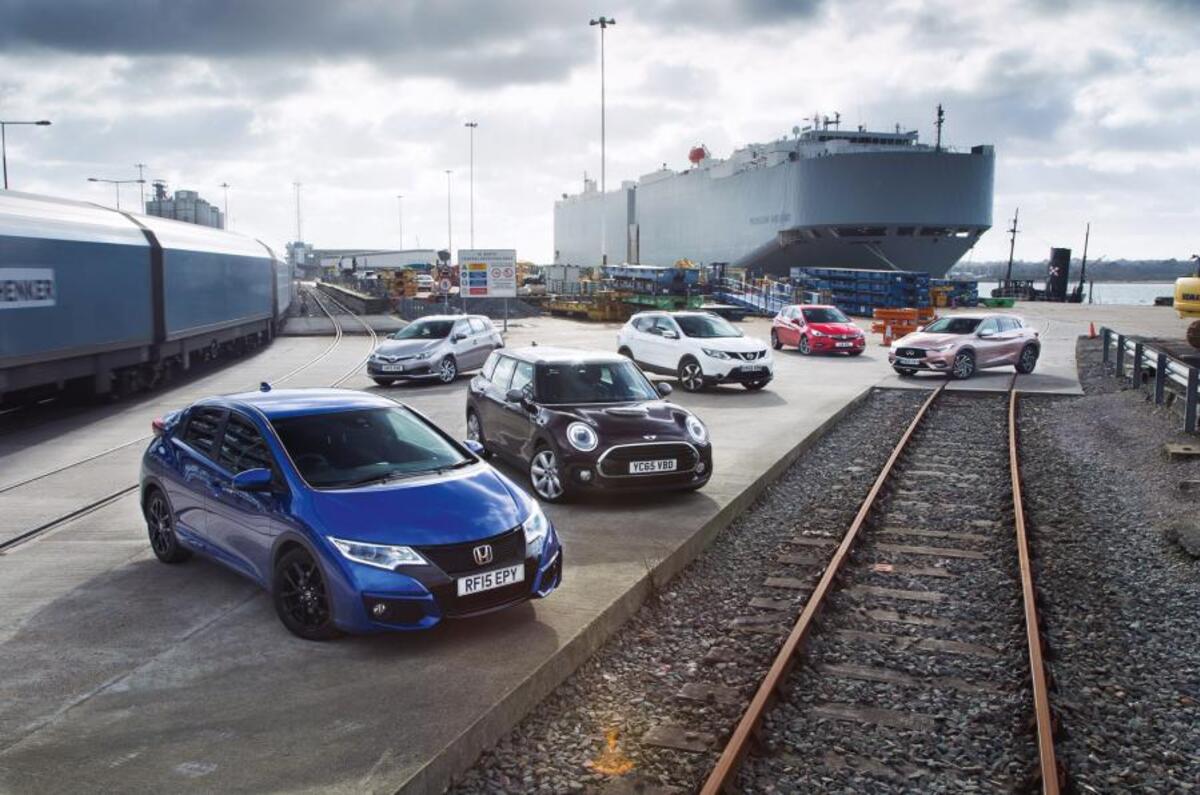UK new car registrations in May grew by 3.4% year on year to 192,649 units, although the Society of Motor Manufacturers and Traders (SMMT) suggests that this is due to a particularly poor May 2017, so this may not be the recovery the industry has been waiting for.
In May, 6384 more cars were registered than in the same month of last year. New VED and falling buyer confidence amid the general election and Brexit uncertainty were blamed for the 8.5% decline posted in May 2017.
The new figure is still down on that in May 2016 (the best May since 2002), during which 203,585 cars were registered. However, in May 2016, diesel held 50% of the market, while petrol had 47.2% and alternatively fuelled vehicles (AFVs) just 2.8%. In May 2018, diesel made up less than a third of registrations, posting the 14th consecutive month of decline, while petrol had a strong majority of 61.8% and AFVs' market share almost doubled in two years to 5.8%.
Within car segments, specialist sports cars rose by 12.7% in May, alongside an 11.7% rise in Land Rover convertible demand — an unusual trend for a market heavily focused on practical, five-door cars. Superminis, up 6%, and SUVs, up 19.2%, were the biggest growers in the high-volume segments.
In the year to date, new car registrations were down 6.8% on last year, with around 80,000 fewer cars registered during January-May compared with the same period in 2017. The private market showed signs of life by posting a 10.1% increase year on year in May, but a 5.7% decline in the year to date. The business and fleet markets remained flaccid, declining 0.7% and 9.6% respectively in May, and falling 7.1% and 16.2% in January-May.
SMMT chief executive Mike Hawes said: “May’s growth, albeit on the back of large declines last year, is encouraging and suggests the market is now starting to return to a more natural running rate. To ensure long-term stability, we need to avoid any further disruption to the market, and this will require sustainable policies that give consumers and businesses the confidence to invest in the new cars that best suit their needs.
"Fleet renewal is the fastest way to improve air quality and reduce CO2, and this applies to hybrid and plug-in technologies, as well as the latest low-emission petrol and diesels which, for many drivers, remain the right choice economically and environmentally.”
Amid the media storm surrounding its new five-year plan, Fiat Chrysler Automobiles had a mixed May in the UK, with the Fiat brand declining by 35% year on year; registrations decreased to 2623 cars from 4075. Alfa Romeo increased by almost a third, with 355 units registered versus 269 in May 2017, while Jeep more than doubled May 2017’s sales with 652 cars last month. Maserati shrunk to 83 units from 107 in May 2017.
MG posted growth of 105.3% over May 2017, selling more cars last month than Jeep and just 40 units less than Lexus, while budget brand Dacia grew by almost 30% to more than 2500 units, with 120,000 cars sold since its UK introduction just over five years ago. Porsche surged by around 56% to just shy of 2000 cars in May. Nissan posted a 18% decline from May 2017, equating to around 2000 cars.
It's business as usual in the UK's top 10 best-sellers in the year so far; the Ford Fiesta leads the pack, followed by the Volkswagen Golf and Nissan Qashqai. The Ford Focus outsold the latter two in May, however.




Join the debate
Add your comment
But aren't used car sales at
But aren't used car sales at an all time high? The SMMT won't mention that and would rather blame Brexit.
But aren't used car sales at
But aren't used car sales at an all time high? The SMMT won't mention that and would rather blame Brexit.
Changes
taxes in the Uk are in petrols favour if anything
ved tax is higher duty is higher as diesel costs more per litre and benefit in kind tax higher.it will go back to petrol being the bad boy due to co2. In five years the market will be 30% diesel mainly premium and suv,petrol 30% cheaper cars and sports ,electric 10% hybrid 20%,but most are not very efficient according to people I know saying they are worse than a diesel for long journeys.